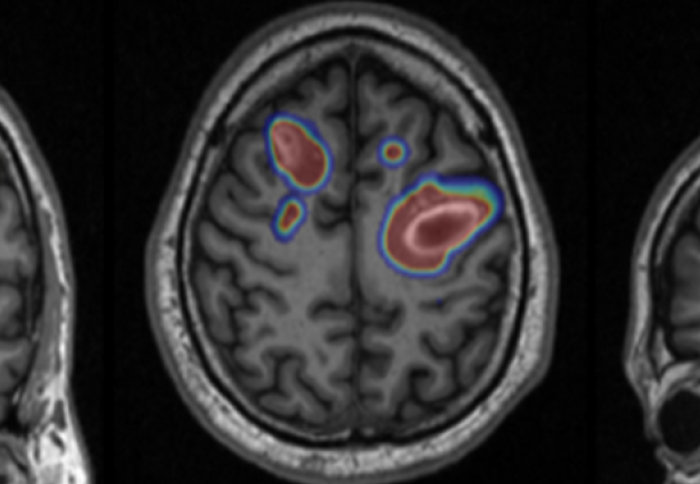New £10m centre in medical imaging and AI

A new £10m centre, announced today, will help train artificial intelligence to improve diagnosis and care.
The London Medical Imaging & Artificial Intelligence Centre for Value-Based Healthcare will train sophisticated artificial intelligence (AI) algorithms from NHS medical images and patient data, to create tools that will help clinicians speed up and improve diagnosis and care across a number of patient pathways including dementia, heart failure and cancer. .
The Centre will take the lead in translating cutting edge AI research from the lab into the clinic Professor Daniel Rueckert Department of Computing
Awarded by UK Research and Innovation as part of the Industrial Strategy Challenge Fund, the Centre is led by King's College London and brings together experts from Imperial College London, Queen Mary’s University London and various healthcare partners.
It will have a focus on transformation and value-based healthcare, and how advanced imaging and AI technologies can be used to improve the patient journey. From earlier diagnosis if there is a problem and reassurance if not, to moving quickly to a treatment which is tailored to the patient and will result in the best possible outcome.
By optimising triage and targeting resources, these technologies will also allow the NHS to reduce wasted effort that is not supporting patient care, and deliver significant financial savings.
Professor Daniel Rueckert, Head of Imperial's Department of Computing, said:
"AI has tremendous potential in radiology and medical imaging. The Centre will take the lead in translating cutting edge AI research from the lab into the clinic while addressing challenges such as the verification of AI systems and ensuring their interpretability, which is vital for enabling safe deployment in the NHS."
Centre Director Professor Reza Razavi from King’s College London said:
"The Centre will provide a fantastic opportunity to transform 12 different patient pathways by using advanced imaging and AI and help make the products that will substantially improve the experience for our patients and their clinical outcomes. It will also allow us to better utilise the resources within the NHS.
"This builds on a great on-going partnership between our researchers, clinicians and industry colleagues that will help put the UK at the forefront of developing and applying new technologies to improve healthcare."
UK Research and Innovation Chief Executive Professor Sir Mark Walport said:
"Early diagnosis of illness can greatly increase the chances of successful treatment and save lives.
"The centres announced today bring together the teams that will develop artificial intelligence tools that can analyse medical images varying from x-rays to microscopic sections from tissue biopsies. Artificial intelligence has the potential to revolutionise the speed and accuracy of medical diagnosis."
Article text (excluding photos or graphics) © Imperial College London.
Photos and graphics subject to third party copyright used with permission or © Imperial College London.
Reporter
Andrew Youngson
Communications Division